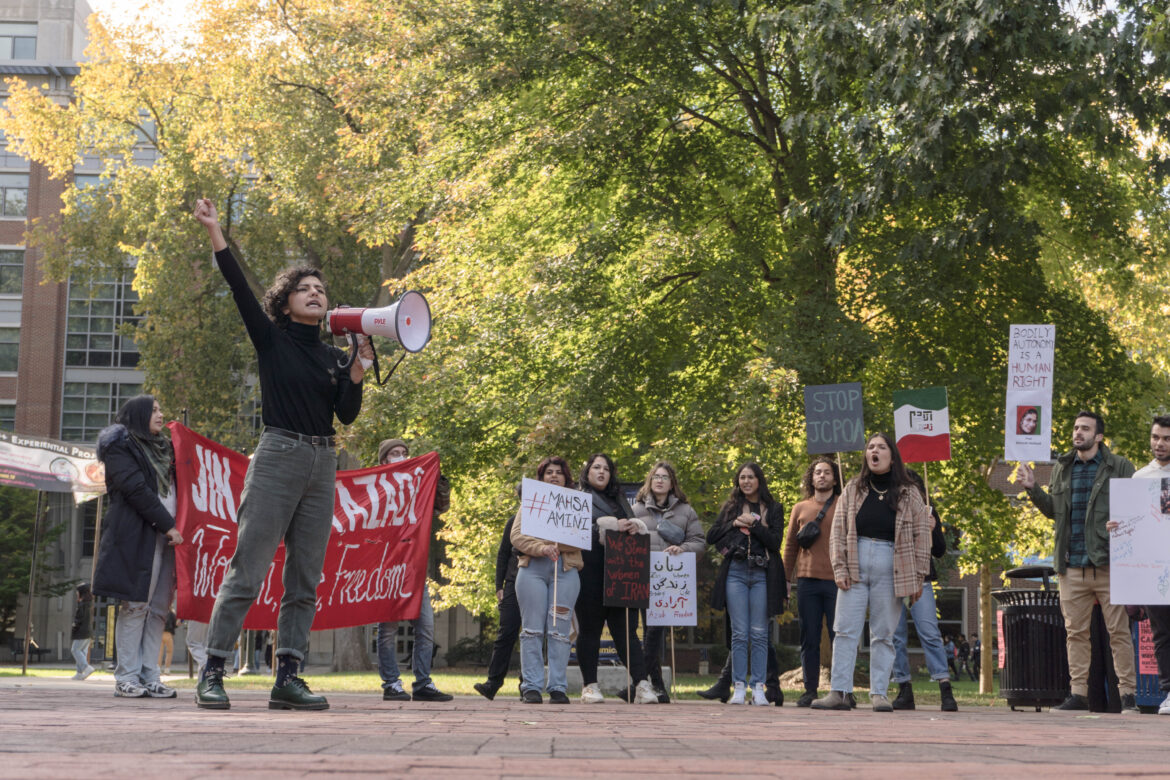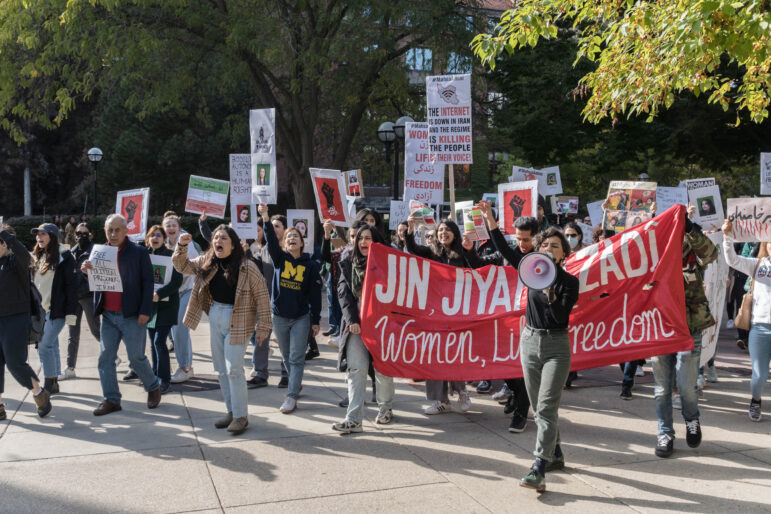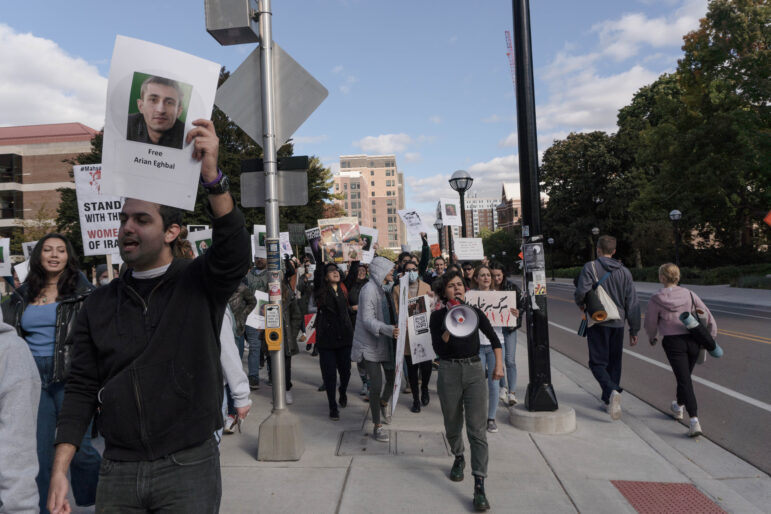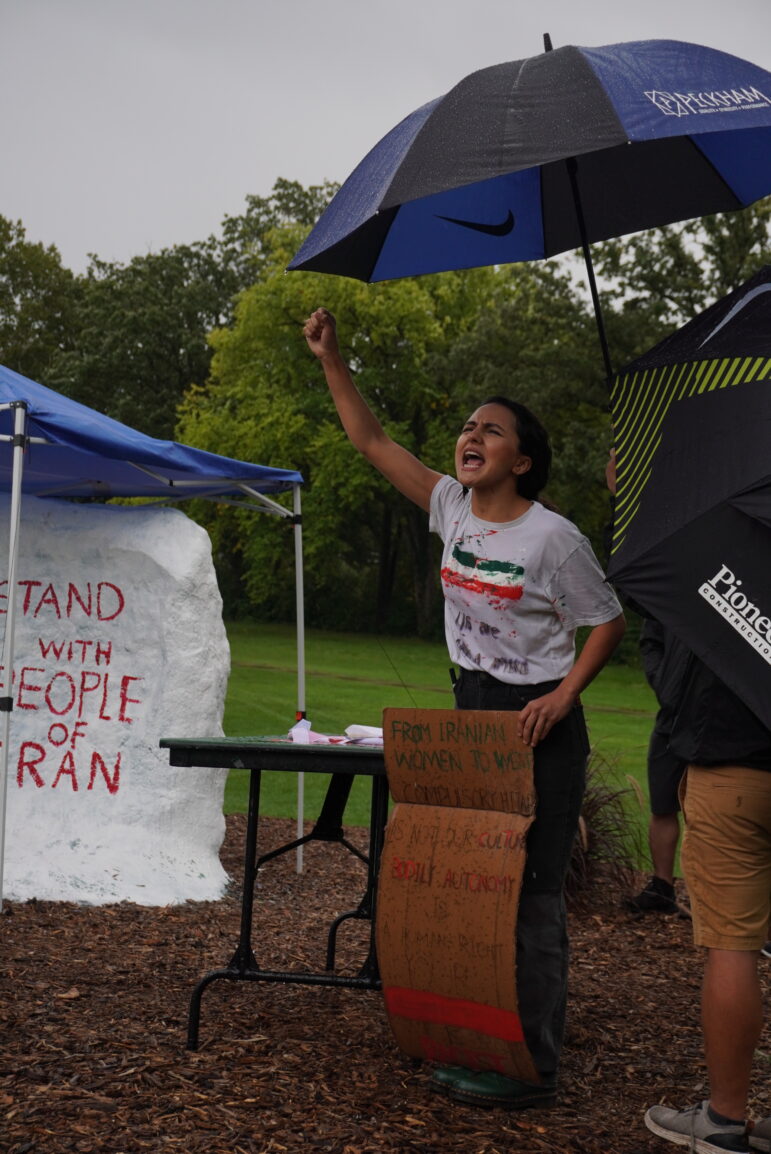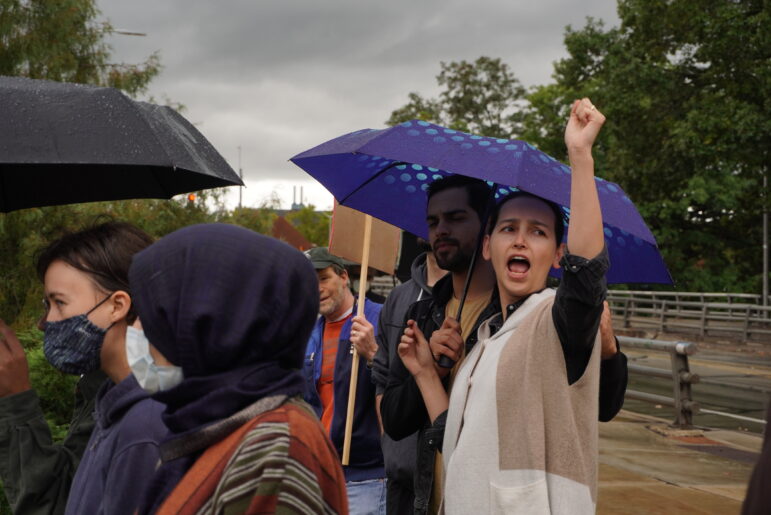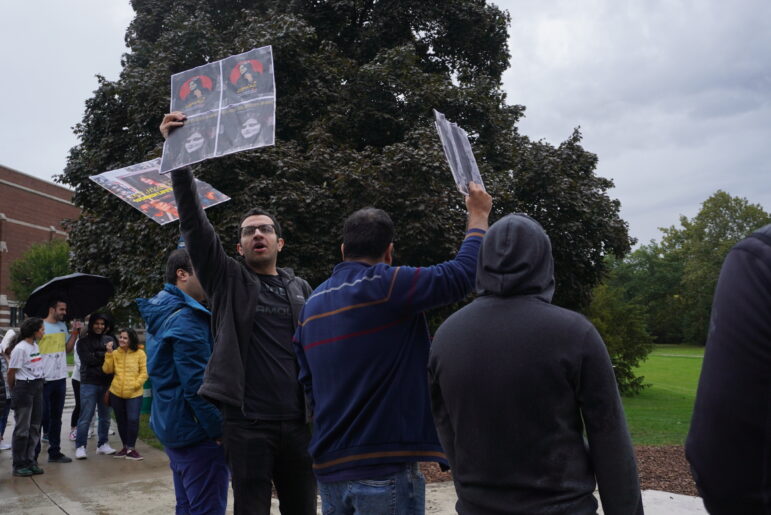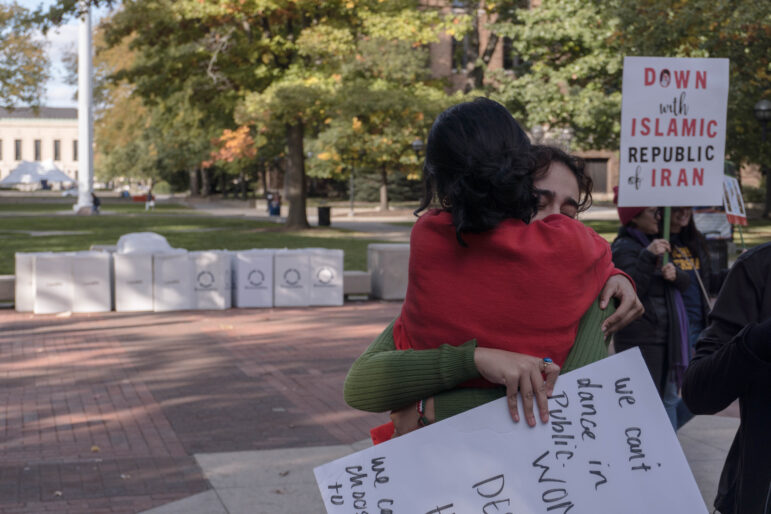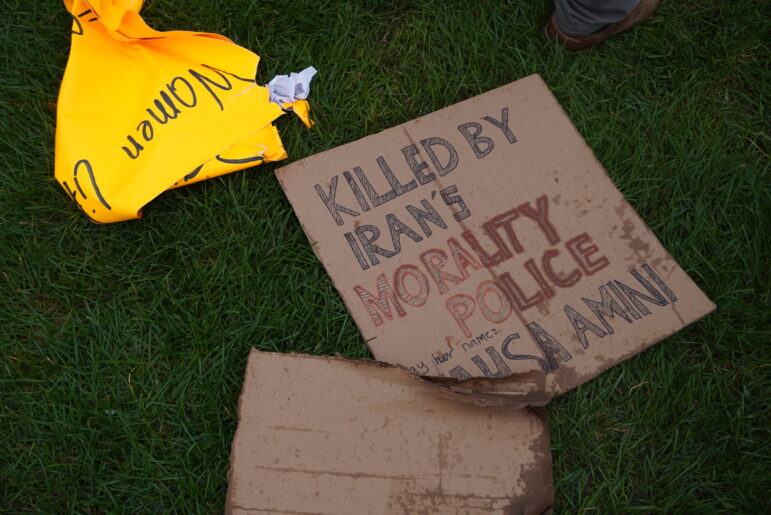Samin Aayanifard was 20 when they were arrested by Iranian morality police for wearing a jacket that appeared too short.
The experience is common for people in Iran, said Aayanifard, a graduate student at Michigan State University. The country’s government has been enforcing a dress code for decades and many Iranians have either interacted with the morality police themselves or know someone who did.
“We used to be frightened and frustrated just to hear and just to face them,” Aayanifard said. “But now they’re beating people. That’s way harsher than the time that I was arrested.”
Aayanifard is one of hundreds of people in Michigan and thousands around the world who have joined protests against Iran’s Islamic regime. The uprising started in response to Jina (Mahsa) Amini’s death after she had been detained by the morality police for wearing an “improper hijab.”
Now, almost three months in, the protestors are showing no signs of stopping in Iran and in Michigan.
“My cousin was arrested by the morality police,” said Parisa Ghaderi, an art history and design assistant professor at Michigan State University. “And that was maybe a month before Mahsa got killed. And I think I felt the pain in a more personal way. Because I kept telling myself that it could be my cousin that was arrested a month prior to this incident.”
A movement led by women
Human Rights Watch says that restrictions on women’s rights in Iran extend to almost all spheres of life including marriage, employment, political office and leisure time. Yet many Iranian women are now taking to the streets, cutting their hair and burning their hijabs.
“I cannot express my awe of seeing this younger generation like high school girls that are so brave in doing what they’re doing. I’m just amazed by the level of bravery that they’re showing,” Ghaderi said. “It feels like their anger has fueled them so much that they have become so fearless.
Aayanifard said this women-led movement also takes under its wing other oppressed social groups in Iran. According to Amnesty International, the Islamic regime has systematically repressed the country’s ethnic minorities, including Ahwazi Arabs, Azerbaijani Turks, Baluchis, Kurds and Turkmen; religious minorities, including Baha’is, Christians, Gonabadi Dervishes, Jews, Yaresan and Sunni Muslims; and LGBTQ+ people.
“(The movement) encompasses all the minorities,” Aayanifard said. “It’s not about women. It’s about men in minorities. It’s about transgender. It’s about all the minorities that we could think of.”
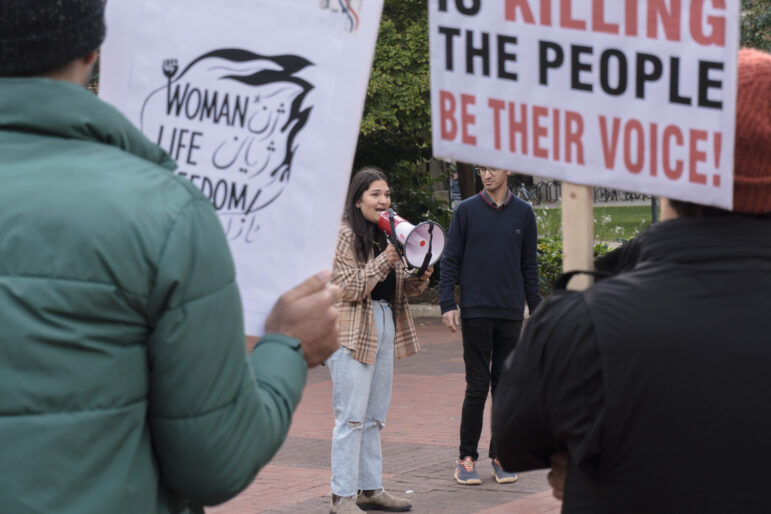
Audra Skuodaitė
Natalia Khoshnnam, an Iranian-American student at Michigan State University, gives a speech at a protest in Ann Arbor on Oct. 8. She calls for people to stand with Iranians and to show that they are not alone in their fight for freedom.Leading the revolution in Michigan
Aayanifard has led multiple protests, including demonstrations at the Capitol, on the Michigan State University campus and in Ann Arbor.
“I feel like I am also so angry for all those years that I was forced to think that others should decide how to cover my body,” Aayanifard said.
“Seeing women in Iran being this powerful makes me so proud. It’s so powerful. And I need to be their voice. I need to shout as I can. I need to be loud, as loud as I can.”
Aayanifard said that being outside of Iran allows them to extend the cause of the protests and draw more attention to the rights of LBGTQ+ people and other marginalized groups of Iran.
“I could make them chant for minorities as well,” Aayanifard said. “Do not suffice to say ‘woman, life freedom.’ Say ‘trans, queer freedom.’ That’s also important.”
Natalia Khosnam, an Iranian-American undergraduate student at Michigan State, joined the protest organized on Grand River Avenue in East Lansing. Despite not knowing anyone at the protest, she said she felt compelled to speak and found herself giving an impromptu speech.
“I was not speaking to my fellow Iranians. I was speaking to everyone else on Grand River and trying to communicate this utter human rights violation in a way that could be understandable for everyone,” Khoshnnam said. “The people of Iran are not asking for much. They’re asking for freedom. The same things we value here. That’s what they want.”
Women’s rights as a global issue
This movement goes beyond Iran – the Iranian women’s demands resonate with many women around the world. These women want to be able to choose what to wear, what to do with their bodies and what to do with their lives. Khoshnnam and Aayanifard said the movement is comparable to conversations about Roe v. Wade, the landmark U.S. Supreme Court abortion case that was overturned in June.
“If you are not standing with women in Iran, how are you standing with women here?” Aayanifard said. “Over there it’s about what you wear, over here it’s about pregnancy. Policing women’s bodies.”
Khoshnnam said Iranians in Michigan are asking for solidarity and awareness from the international community.
“A lot of the times when we talk about activism, we talk about how that’s not enough. Right? But this is one of those cases where it is,” Khoshnnam said. “That’s all we need – Iranian people need to know they’re not alone, and the Iranian government needs to know there’s nowhere left to hide.”
